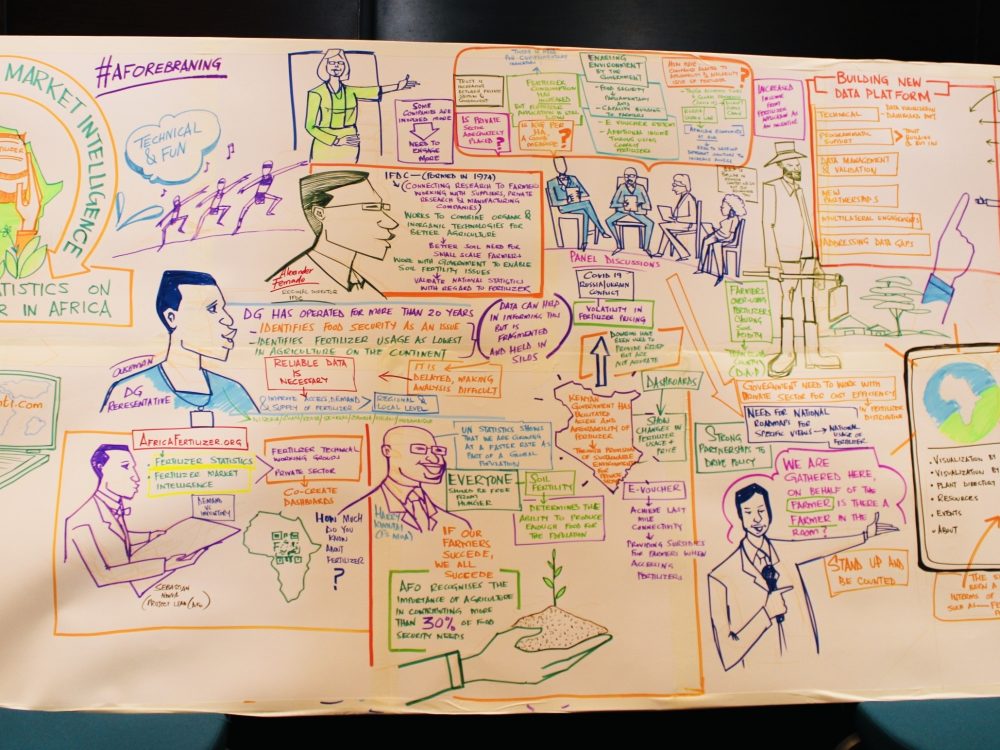CCAPS Dashboards Win Special Achievements in GIS Award
Development Gateway would like to congratulate our partner, the Robert Strauss Center for International Security and Law, for receiving the coveted Special Achievements in GIS (SAG) Award for its work mapping security risks related to climate change.
The Strauss Center uses Esri’s geographic information systems (GIS) technology as part of its Climate Change and African Political Stability (CCAPS) program to analyze how communities are vulnerable to climate change, understand links between climate change and conflict, and assess the effectiveness of targeting international responses. The Strauss Center’s CCAPS Mapping Tool combines climate, conflict, governance, and aid data to analyze how climate change impacts and responses intersect in Africa.
Dr. Francis J. Gavin, Director of the Strauss Center, noted the potential for the tool in supporting research and policy efforts. “The CCAPS mapping tool allows analysis at various levels of inquiry, from assessing high-level trends across many issues to examining detailed data on particular issues and locations of interest.”
The CCAPS mapping tool is one of 175 sites chosen worldwide from over 100,000 nominees. Sites are nominated by Esri staff, then reviewed and selected by Esri’s president Jack Dangermond.
“The SAG Awards identify the organizations and people that are using the power of geography to improve our world and drive change,” said Esri President Jack Dangermond. “At Esri, we are always deeply inspired by the passion and innovation of our users. They deserve recognition for both solving their communities’ greatest challenges and for their invaluable contributions to the continued evolution of geographic science.”
CCAPS Senior Program Manager Ashley Moran underscored the integrating role that mapping plays. “Efforts to understand the security implications of climate change clearly require analysis from many different fields,” said Moran. “By combining a range of scientific, security, governance, and development data, the mapping tool aims to leverage the many disciplines and big data needed to investigate these complex security questions.”
CCAPS partnered with Development Gateway to create its integrated mapping platform last year to analyze how climate, conflict, and aid intersect. CCAPS and Development Gateway have since produced data dashboards for each thematic area under study on the program.
“These dashboards visualize the impressive collection of data created by CCAPS and its partners in an intuitive, accessible platform,” said Jean-Louis Sarbib, CEO of Development Gateway. “Using these tools, policymakers and researchers can analyze trends and see relationships between factors which are too often viewed only in isolation. Esri technologies are key to such impressive integration and help to translate big data into clear insights and deep understanding.”
As a collaborative effort, the mapping tool has brought together data from many organizations, previously housed in disparate locations, to provide the most complete picture yet of climate security and development in Africa.
In August 2012, CCAPS launched the aid dashboard, which includes datasets from CCAPS, the African Development Bank, and the World Bank, all geocoded by AidData, representing the most comprehensive collection of geocoded data on aid projects in Africa.
In February 2013, CCAPS released the conflict dashboard, which brings together mapping, trends analysis, and raw data so that users can visualize emerging and historical conflict trends in Africa. The dashboard utilizes two conflict datasets from the CCAPS program, including the Social Conflict in Africa Database (SCAD) and the Armed Conflict Location and Event Dataset (ACLED).
Last month, CCAPS released a new interactive dashboard that explains the modeling behind the CCAPS Climate Security Vulnerability Model. The model, developed by CCAPS researchers, is used to identify the locations of chronic vulnerability to climate security concerns in Africa.
In addition to being a resource for academics, the mapping tool and thematic dashboards are proving useful in the field. Organizations use the online tools to analyze recent conflict events in their areas of operation, to access information needed for local advocacy on climate issues, and to target adaptation programs in conflict-prone regions.
CCAPS will release additional dashboards on climate vulnerability and climate projections in fall 2013.
Share This Post
Related from our library

Building a Sustainable Cashew Sector in West Africa Through Data and Collaboration
Cashew-IN project came to an end in August 2024 after four years of working with government agencies, producers, traders, processors, and development partners in the five implementing countries to co-create an online tool aimed to inform, support, promote, and strengthen Africa’s cashew industry. This blog outlines some of the key project highlights, including some of the challenges we faced, lessons learned, success stories, and identified opportunities for a more competitive cashew sector in West Africa.

Digital Transformation for Public Value: Development Gateway’s Insights from Agriculture & Open Contracting
In today’s fast-evolving world, governments and public organizations are under more pressure than ever before to deliver efficient, transparent services that align with public expectations. In this blog, we delve into the key concepts behind digital transformation and how it can enhance public value by promoting transparency, informing policy, and supporting evidence-based decision-making.

From Data Gaps to Impact: Key Insights from the VIFAA Program
Over the last six years, DG, together with its partners AfricaFertilizer (AFO) and Wallace & Associates, collaborated to implement the Visualizing Insights on Fertilizer for African Agriculture (VIFAA) Program. In the program’s final year (2024), the team undertook a “program learning process” to reflect on outcomes, challenges, and successes through internal interviews. This blog captures five key learnings, which we hope will guide similar programs aiming to bridge data gaps in agricultural development.